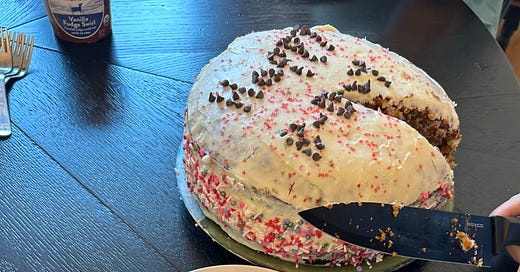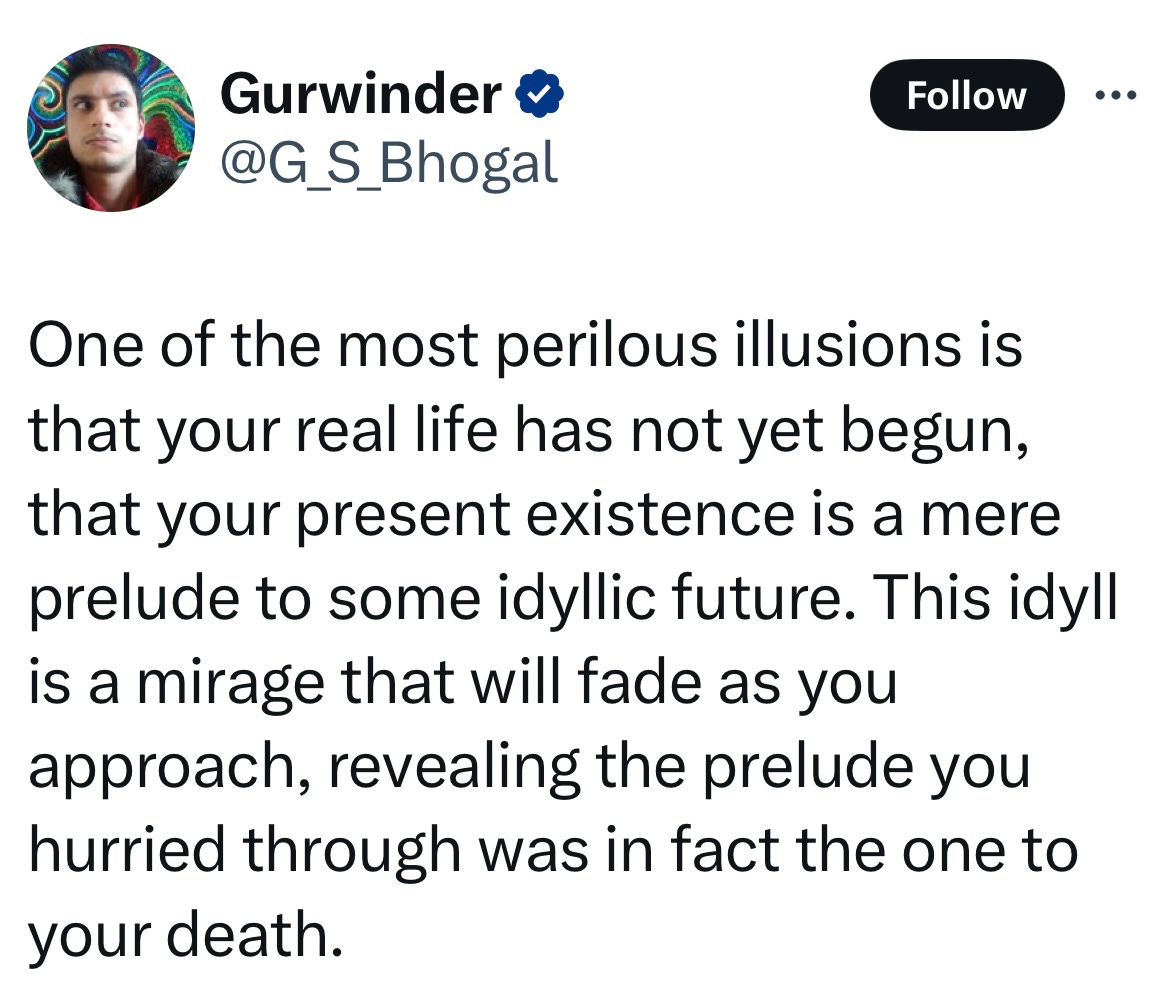
Last week, we celebrated Dad’s 79th.
I’ve had the opportunity to meet five generations of my family.
Three Great-Grandparents
All My Grandparents
Parents, In-Laws, Uncles and Aunts
Brothers, Sisters and Spouses
Kids, Nephews and Nieces
Dad’s managed more “good years” than anybody.
No one, including Dad, could have predicted this outcome.1
Risk Over Time
At the other end of the spectrum, one of my favorite kids in Boulder died last month. His parents are two of my favorites, as well. My heart goes out of everyone touched by this tragedy.
His life was cut short in an accident that could have easily happened to my younger self.2
Our brains are not designed to quantify the risk of accidental death:
Particularly if we are male between the ages of 15 and 25.
Especially, if we are filled with drugs and/or alcohol.
On my archive blog, I’ve written about Hiking With Ghosts and Angel Birthdays. We never see the many lives lost when we die young.
Even if we die “normally,” we can miss out on many good years. Dad completely changed his life at 70:
Health
Vitality
Geography
Relationships
If I gave you a shopping list of the challenges facing Dad at 70, then you never would have predicted his outcome at 79.
The future is unknowable and highly malleable.
It’s up to us to create it.
Accidents Happen
Over time, I have refined my approach to accidental death.3
I’ve been guided by three principles:
Prepared is better than protected.
Exposure over time, matters.
There are certain games we never want to play.4
I’ll run you through practical examples that have ruined families close to me. Each is fun in the moment.5
Free solo climbing (death).
Speed, racing downhill and road racing (orthopedic surgeries, end of athletic careers, loss of functional capacity).
Alcohol consumption away from spouse with attractive people (infidelity, leading to divorce and family break up).
Elevated heart rate alongside physically attractive people (misplaced emotions, leading to divorce and family break up).
Most of us can see the risk in free solo climbing.
Fewer of us can see the risk in elevating our heart rate alongside someone we find attractive.
Even fewer will take the initiative to reduce the (remote) chance of something progressing to ruin.6
Same deal with anger, disgust and contempt. These negative emotions are best addressed in the early stages before they progress to actions with consequences.
Ruin starts small.
Back to Dad…
Many Lives
Dad’s story is inspirational, a new life beginning with small changes at 70.
I collect examples of successful change, they inspire me to be proactive with positively directing my life.
Quite often, aging is framed as “enjoying the time we have.” Enjoyment strikes me as passive and fleeting.
Dad was enjoying himself but made a decision to reach for better.
Who Do I Want To Be?7
Where Do I Want To Take My Life?
Or we could change it up a bit…
How Do I Want To Spend My Time?
Where Is That Likely To Take Me?
Am I OK With That?
Knowing how we want to spend our time can be a helpful filter for understanding what we need to remove.8
…and the most important removal items are habits & choices that can lead to ruin.
More on better thinking and prediction next week. If you want a head start then get a copy of Mistakes Were Made, but not by me.
If you’re having a tough time in your current life => change it. Your future self will thank you.
Each phase of our lives is temporary. Being able to see the reality of change reduces anxiety and improves our ability to think clearly.
A good podcast on risk management is Tim Ferriss’ conversation with Ed Thorp.
Here’s a link to my archive writing on Risk & Ruin. It’s worth your time to embody these concepts in front of your spouse and kids.
Kids need to see these lessons. One sensible friend can save a life. Group risk-tolerance will rise towards the level of the highest risk-seeking individual. I’ve had to take a break from certain friends. Time settled them (and me) down.
When people tell me to “be more fun,” I think about fun ghosts and broken marriages.
Everyone who makes a poor decision starts as “I would never…” If you catch yourself saying “I would never” then pause and pay attention to the many people who did. We share a capacity for poor judgement.
I collect role models who are 10-20 years older than me. Both for inspiration and to be able to learn from their errors.
A blog post from Neal Stephenson about productivity in late middle age. If it seems I’m tough to meet with… it’s because I’m spending time with my family and writing content to share widely.




